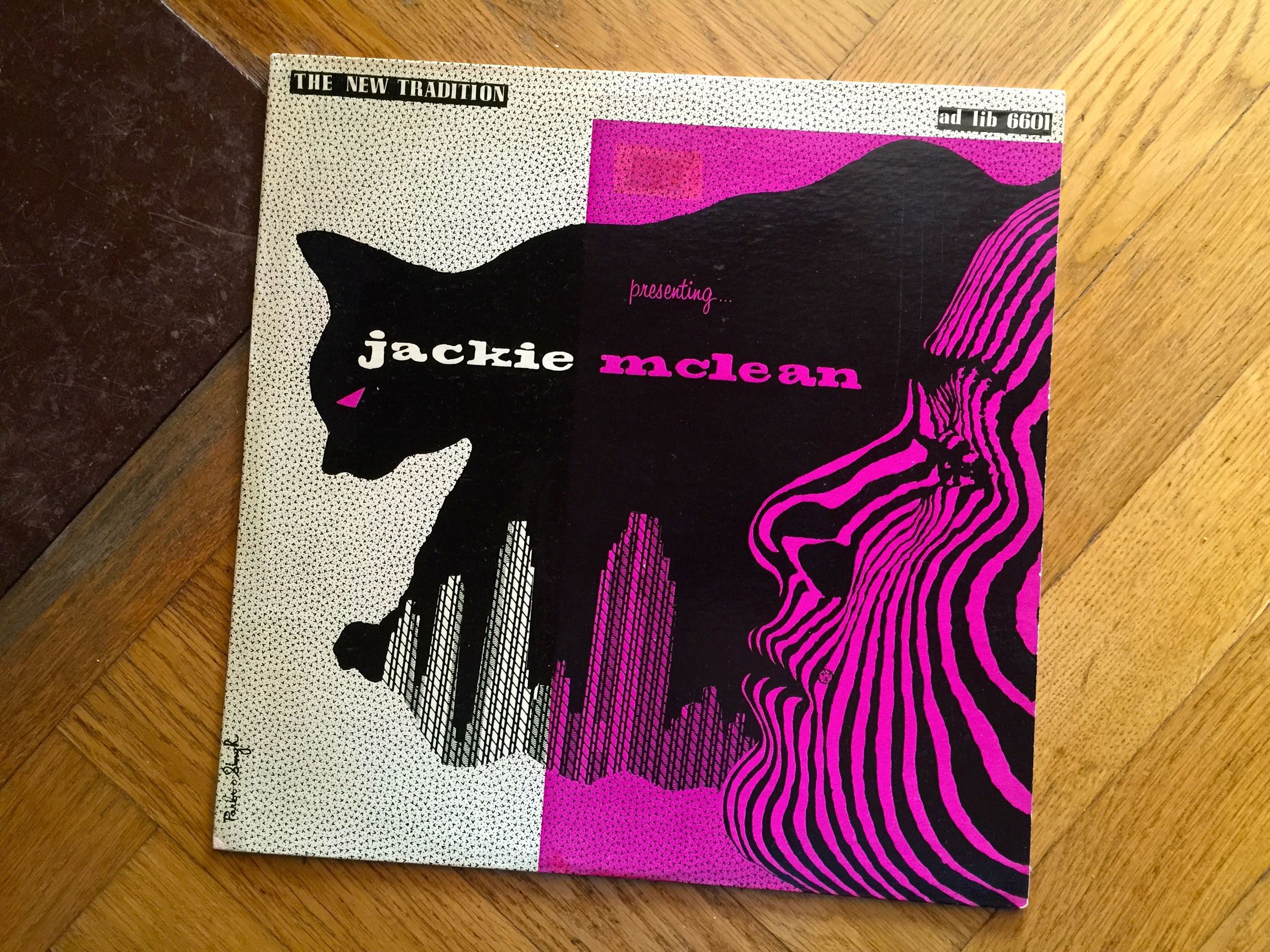 He played on a couple more sessions in '55--one with George Wallington, the other under his own leadership, Both were released on tiny labels: the Wallington live album on Progressive, the McLean Sextet album on Ad Lib. This one, according to the Rare Vinyl Jazz Collector (and aren't you glad such people exist), is "possibly the rarest of all the jazz collectibles out there." So since, like the ivory-billed woodpecker, it may never actually be seen in the wild, here's a picture of the album cover. I don't know who did the art, but it's a gem.
He played on a couple more sessions in '55--one with George Wallington, the other under his own leadership, Both were released on tiny labels: the Wallington live album on Progressive, the McLean Sextet album on Ad Lib. This one, according to the Rare Vinyl Jazz Collector (and aren't you glad such people exist), is "possibly the rarest of all the jazz collectibles out there." So since, like the ivory-billed woodpecker, it may never actually be seen in the wild, here's a picture of the album cover. I don't know who did the art, but it's a gem.So, veteran or no, 1956 was really his debut year as a jazz force. He recorded for Prestige, Atlantic (with Mingus) and Columbia (with Blakey). By August, he was considered enough of a star that Bill Hardman was introduced on his first recording session as ""Jackie's Pal."
Jackie's pal is back with him for this abbreviated session, along with Red Garland, Paul Chambers and Art Taylor, who would take center stage as a trio for the rest of the afternoon. They do two standards and an original.
:format(jpeg):mode_rgb():quality(90)/discogs-images/R-2937631-1308161023.jpeg.jpg) It's wonderful listening. The interplay between the two pals is intricate and yet straightforward, especially on "McLean's Scene." And this rhythm section continues to reward, every time out. Some great solos by Red Garland and Art Taylor, but it's Paul Chambers who takes your breath away. You expect a bass solo to come somewhere in the middle of a quintet piece, but on "Gone With the Wind" Chambers is the penultimate solo, right before McLean and and the restatement of the head.
It's wonderful listening. The interplay between the two pals is intricate and yet straightforward, especially on "McLean's Scene." And this rhythm section continues to reward, every time out. Some great solos by Red Garland and Art Taylor, but it's Paul Chambers who takes your breath away. You expect a bass solo to come somewhere in the middle of a quintet piece, but on "Gone With the Wind" Chambers is the penultimate solo, right before McLean and and the restatement of the head.You expect a piano vamp to begin a jazz quartet or quintet number--sometimes an extended vamp that becomes the head and an improvised solo. On "Mean to Me," though the first notes one hears are Garland's, Paul Chambers steps in and takes over that job. Cool.
Because this was an abbreviated session, it had to wait for LP release. It was combined with a 1957 McLean session with a different lineup, and released in 1959 on New Jazz.
Order Listening to Prestige, Vol. 1 here.


No comments:
Post a Comment